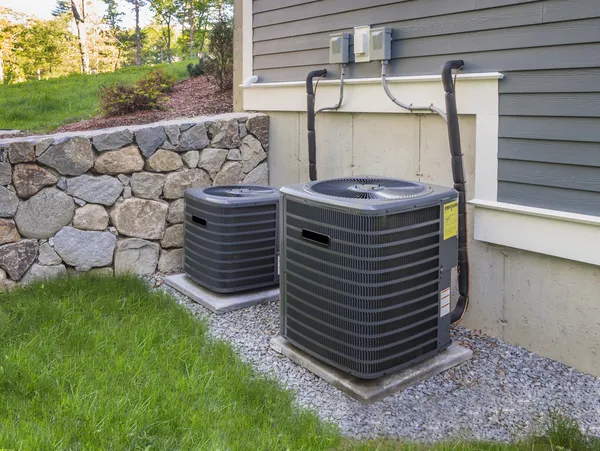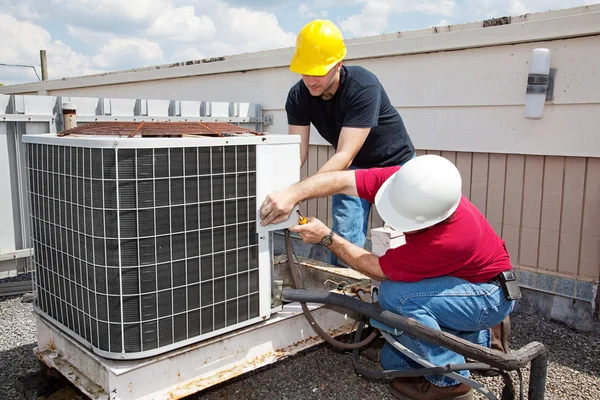- Home
- Ways to Conserve Energy At Home
- Tips to Make Your HVAC System Running Smoothly
10 simple Tips To Keep Your HVAC System Running Smoothly All Year Round
Since the weather is getting colder, a lot of us are turning our thoughts to heating systems. While you may want to ignore your heating system and hope everything is fine with it, the truth is that it may need some attention well before the snow falls.
If you want to avoid unpleasant surprises down the line, it's important to check your system out now that the weather is cool. It's well worth the effort to call in professionals to perform inspections on your system to ensure that everything is still in good working order.
Many homeowners are unaware of their heating and cooling equipment until they need to use it. But your comfort is important – whether you’re heating your home in the winter or cooling it in the summer.
To make sure your system is running its best, be sure to pay attention to these signs that maintenance is needed. If you need your air conditioner maintenance, give us a call. After all, a good Austin HVAC company can help you stay comfortable all year.
Here are some helpful tips for keeping your HVAC system in top shape.
1. Set up an appointment with a professional for a tune-up
Before the weather starts getting hot, schedule a tune-up with a skilled technician. A tune-up will ensure your unit is optimally efficient and running as it should. The experience it provides, feeling comfortable in your own home, is priceless.
Tune-ups usually occur during the spring or fall, because technicians get busier later in the year. But it's still possible to schedule one during the summer. You can always call the customer service number on your invoice or from our website.
An HVAC tune-up includes: Cleaning the coils and other equipmentVacuuming of vents replacement of filters full system check-up to ensure it's running optimally.
2.
Clean the outdoor condenser unit

The outdoor condenser unit of the HVAC is an important part of the system that helps to keep your home cool and comfortable. It is important to keep the condenser unit clean so that it can continue to operate effectively. There are a few simple steps that you can take to clean the outdoor condenser unit of your HVAC.
First, you will want to turn off the power to the unit. This can usually be done by flipping a switch on the side of the unit. Next, you will want to remove any debris that may be around the unit.
This includes leaves, twigs, and any other debris that may be blocking the airflow. Once the unit is clear of debris, you can use a hose to spray down the unit. Be sure to use a gentle stream of water so that you do not damage the unit. After you have sprayed down the unit, you will want to use a brush to scrub any remaining dirt or debris.
Finally, you can rinse the unit with clean water and turn the power back on.
3. clean the indoor condenser unit
The indoor condenser unit of the HVAC system is designed to remain inside the house or building so that the heat from the unit can be dissipated from the building to the outside. While this is a great design, it is inevitable that the buildup of dirt and dust will cause the unit to work harder than necessary, thereby increasing your power bill.
To clean your unit, first locate the access panel and remove it. Next, use a soft brush to remove any debris from the coils and fins. Replace the access panel, and your indoor unit is ready to work!
More ways to conserve energy at home
4. Replace the HVAC Unit
If you're in need of a heating and air conditioning unit, consider replacing your old one. Having a unit that's less than optimally functioning can be very costly on your monthly budget, as well as your home's environment.
A new, more efficient unit can help out in many ways, like cutting down on expenses and waste. Ask your heating and air conditioning technician if he or she thinks it might need to be fixed or replaced.
5. Make sure you check the concrete pad
If your outdoor condensing units are located on an uneven surface, there could be a risk of water flood damage. Condenser units must be installed on a flat concrete slab for the best performance and most efficiency.
On the other hand, if your slab has a minor crack, it can be fixed with a hot mix asphalt patch. Heating and cooling do recommend that you check your condenser's concrete pad to make sure that it is not cracked.
If there is a crack in the foundation of your condenser unit, you could need a new unit. If the crack is minor and you don't think it's going to get worse, you can fill the crack with a hot mix asphalt patch.
One of the most common reasons for the failure of HVAC units is cold drafts that are caused by the unit being installed directly on the ground. A concrete pad will keep the unit at the proper operating temperature and prevent the unit from constantly turning on and off to re-adjust the temperature.
TIP: If your concrete pad is cracked, seal it before putting down the HVAC pad. If your concrete pad is cracked, seal it before putting down the HVAC pad.
These concrete blocks come pre-drilled so they are very easy to set into place. Once installed, the concrete pads are also extremely durable, and won't crack or break after years of use. For more information about these concrete blocks.
6. Check for broken or clogged ductwork and correct it as necessary
If your ductwork is broken or clogged, it can cause a number of problems in your home. Your HVAC system may not work as efficiently, and you may see an increase in your energy bills.
You may also notice that your home is not as comfortable as it should be. Dust and other debris can also be blown into your home through ductwork, which can be a health hazard.
If you think you may have a problem with your ductwork, it's important to have it checked out by a professional. They will be able to diagnose the problem and make the necessary repairs. In some cases, the ductwork may need to be replaced. This is a big job, but it's important to do it right in order to keep your home comfortable and safe.
7. Check the compressor and filter for wear and tear

Two of the most important components in your HVAC system are the compressor and the filter. As the compressor works to cool or heat air, the filter works to clean it.
The longer the filter is used, the more likely it is to become clogged and damaged. This can lead to a decrease in efficiency and an increase in repair costs. Many filters are sold as disposable, meaning you can remove the old one and install a new one on the same day.
However, there are semi- and permanent filters available as well. These can be cleaned and reused for a longer period of time and will require less frequent replacement. While changing your compressor and filter does not have to be a regular practice, it is important to check them regularly for wear and tear, as well as to replace them if necessary.
8. Check and clean the HVAC compressor discharge hose
It's important to check the HVAC compressor discharge hose to make sure it's functioning correctly! First, make sure the air filter is clean and that the blower door is closed.
Then, turn the temperature down one notch while the blower door is closed. If the hose leaks, the temperature gauge will show a drop in temperature. If it's OK, the temperature gauge will stay the same.
The discharge line can also be checked by removing the discharge line and running the blower door with the line disconnected. If there is no pressure, replace the hose or check the compressor.
9. Check and clean the HVAC blower motor resistor
After running the HVAC system, it's important to check the blower resistor. The blower motor resistor is responsible for supplying power to the fan inside the HVAC system to make cool air circulate through the vents in the house.
If you notice that it is acting up or has been failing, it is best to have it replaced immediately. It can be dangerous to run the system without this component. It can also cause problems with your HVAC system and may not last as long as it normally would if it works at all.
10. Check for overheating warning lights on the HVAC unit
Always be sure to check to overheat warning lights on your HVAC unit before starting it for the season. If you notice that the light is on, turn off the unit immediately.
If the unit is still running, shut it down and call an HVAC technician to come and take a look. If you keep using the unit, it's possible that the unit will become permanently damaged.
Not all technicians will be the same, so be sure to find someone who is reliable before allowing them to work on your HVAC unit.